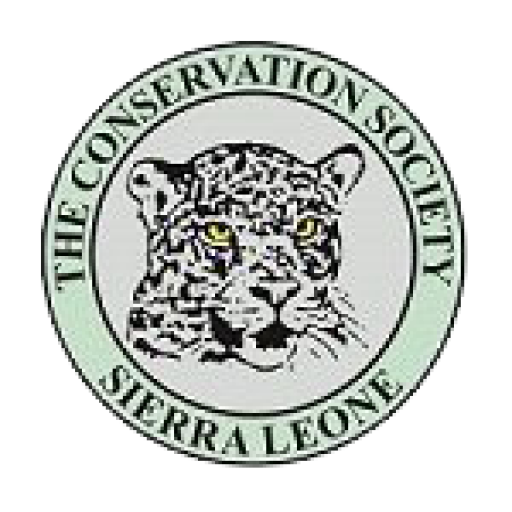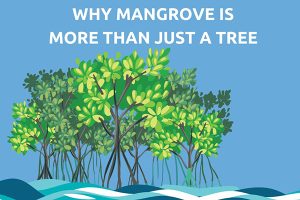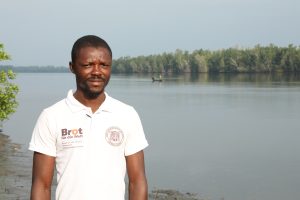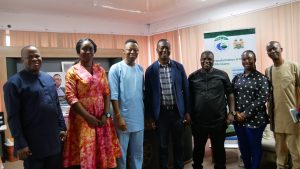On 1st June 2022, the Conservation Society of Sierra Leone (CSSL) engaged like-minded local CSOs in a round-table discussion at the Conference Hall of the Council of Churches of Sierra Leone (CCSL) in Freetown. The objective was to discuss how civil society and environmentalists could work better together to save the remaining forest of the Western Area Peninsula National Park. This was preceded by a bilateral engagement with heads and representatives of these institutions by CSSL to introduce the initiative and seek their support and collaboration.
Representatives from CCSL, Catholic Relief Services (CRS), Civil Society Advocacy Network on Climate Change and the Environment Sierra Leone (CAN-SL), Climate Change, Environment & Forest Conservation Consortium Sierra Leone (CEFCON), Culture Radio, Environmental Foundation for Africa (EFA), Environmental Forum for Action (ENFORAC), Green Scenery, Reptiles and Amphibian Program Sierra Leone (RAP-SL), Tacugama Chimpanzee Sanctuary and Women´s Network for Environmental Sustainability (WoNES) were welcomed by Dr. Sheku Kamara, Executive Director of CSSL. “We are looking back to many years of struggle to protect the Western Area Peninsula National Park. Sometimes it looks like the battle is lost. But we cannot stop with our efforts until we have won, and the forest is saved”, Dr. Kamara emphasised in his welcome statement. “The President has visited the destroyed forest areas. He made a strong commitment. Now it is up to us to make sure that this time the commitment will not be forgotten after weeks as it had happened in the past.” Edward Sesay, Program Manager at CSSL, added the importance and the purpose of the round-table meeting: “We met here today because it is time to continue what we have started before. We have to come together again to speak with one voice and act as one body towards our common goal: the protection of the forest and the security of people at the Peninsula.”
All the participating institutions are experts in their area of environmental activities. There was no need to explain why it is important to protect the forest. There was no need to emphasise on the great services the forests is providing to the people of Freetown and the Peninsula like fresh air, potable water catchment areas, prevention of floods and landslides, fuel wood, etc.
Abdul Kaprr Dumbuya, Communications Officer at CSSL, and Harold Williams, Program Director of the Union of Environmental Journalists and former Chairman of ENFORAC, moderated the meeting. They led the participants through the agenda and moderated answers to the important questions of the day: What have we been doing in the past? What are we doing at the moment? What went wrong in the past and what do we have to change to succeed in the future? The representatives of the different institutions had space to share their experience and current efforts towards the protection of the Western Area Peninsula National Park with the other participants. Even before the meeting it was clear that all institutions are contributing in many different and important ways including tree planting activities, using tree tracking tools to monitor the growth of planted trees, engagements to improve environmental education in communities around the Peninsula. Most institutions are also involved in round-tables initiatives and committees led by government institutions to address various issues around conservation, water security and land-use.
As the discussions continued, the like-minded organisations talked about challenges and threats to the forest. The biggest threats – of course – are human beings and their activities in and around the forest. The increasing population at the Peninsula was named as one of the biggest challenges, owing to the need for space to build houses and the huge dependence on the forest for livelihood, as all of which is catapulted by weak enforcement of the laws which should protect the forest. Furthermore, communities were also mentioned as some of them sell land and encroach into the National Park. The plenum did share testimonies of the presence of expensive buildings along the Peninsula road which are not built by people who depend on the forest for their livelihood. At the same time, the like-minded institutions did a critical introspection of themselves as civil society and admitted that sometimes the commitment was not strong enough to work together and to put all efforts into trying to reach the ultimate goal. Others mentioned the lack of sustainability of activities as another big challenge.
What was generally clear however, was the fact that all these challenges and threats outlined are not new. The discussions were then centred around like-minded environmental CSOs could now work more collaboratively and coordinated together to ensure more success than in the years before. The representatives of the different institutions therefore agreed that, there has to be a multi-stakeholder approach. There is need to continue to involve government institutions, community heads, community members, women’s groups, youth groups, the media as well as religious leaders and other institutions. This is all in a bid to spread the key messages across and get existing laws to be enforced by government, and environmental issues being prioritised and integrated into the political agendas of all parties.
Many ideas came up in the discussions on how the CSOs could work more effectively together moving forward.
The most important outcome of the round-table discussion was that this was only the start of many meetings and engagements to follow. There will be several joint activities including radio and TV programmes among others to reach all people in Freetown, the Peninsula as well as nation-wide to make sure that the Western Area Peninsula National Park continues to be there to provide fresh air and fresh water for the next generations.
Join us and be with us from the beginning onwards. If you and your organisation want to be part of this movement, contact us. We will be happy to enlarge the group of like-minded organisations for our environment.



